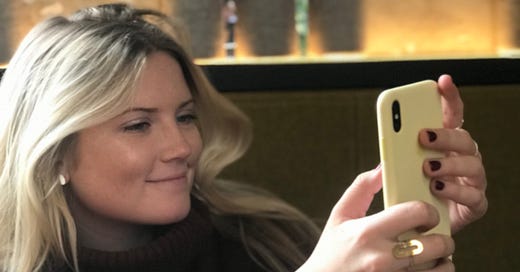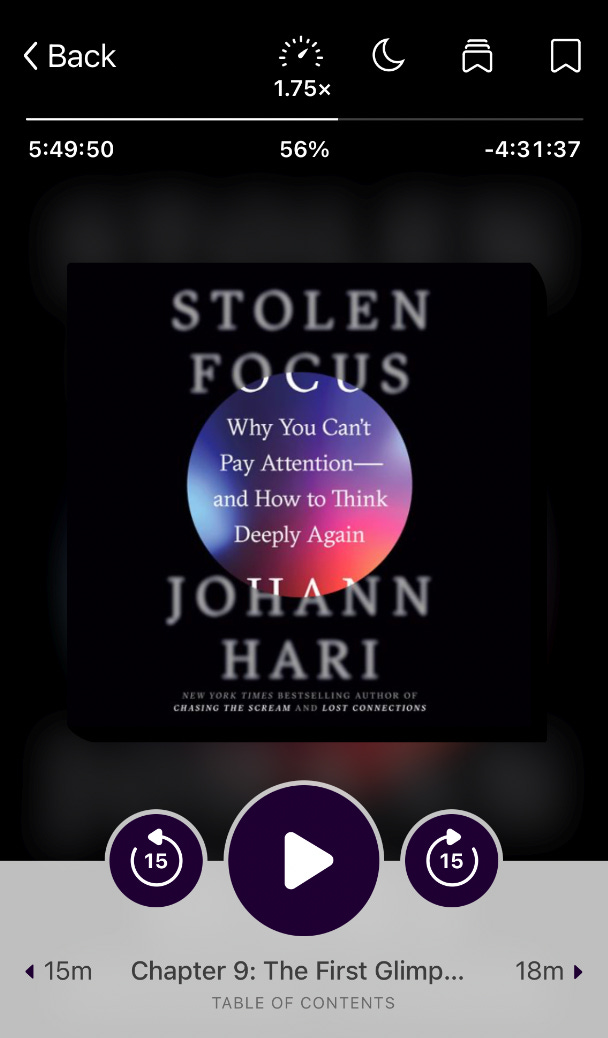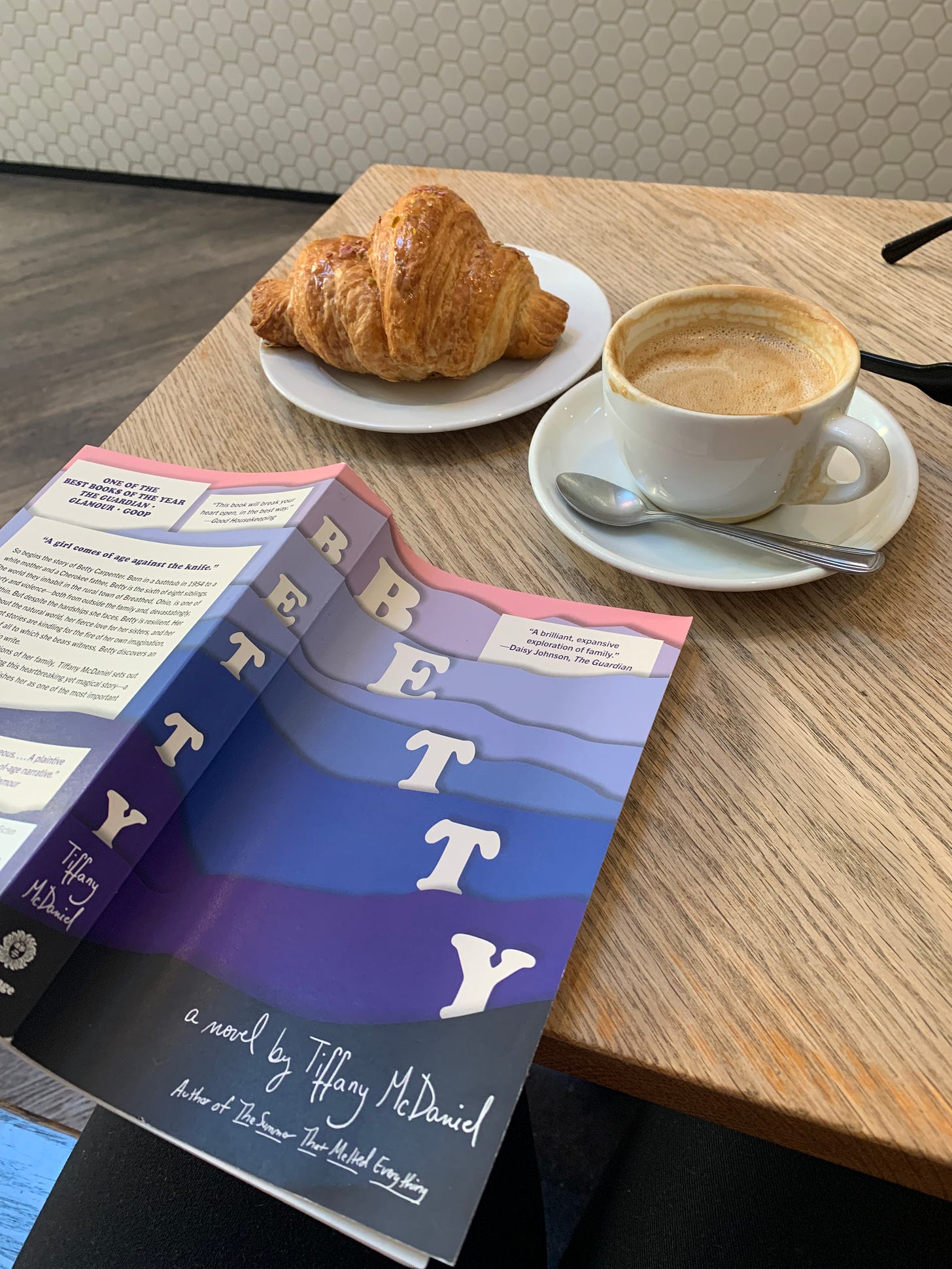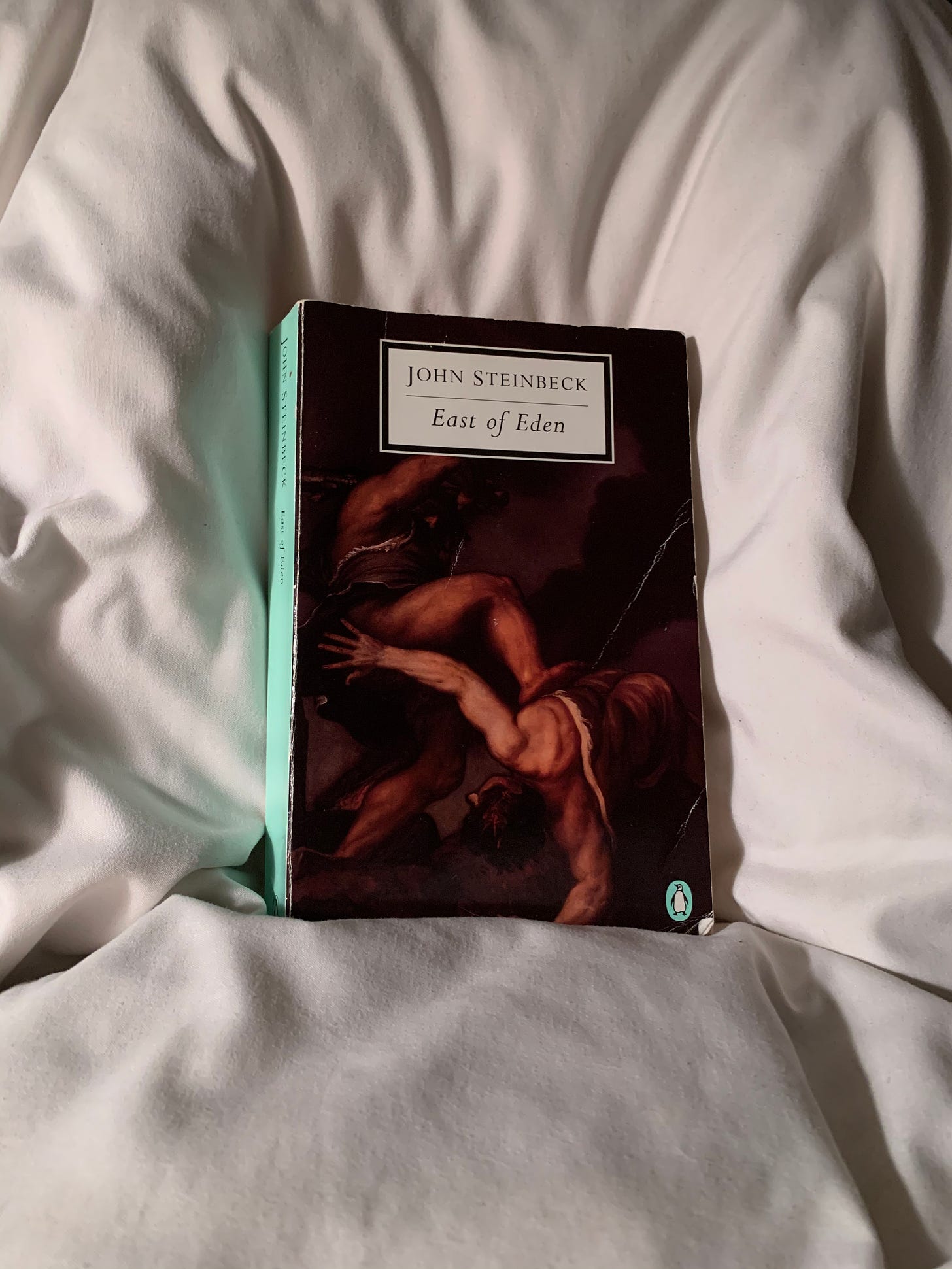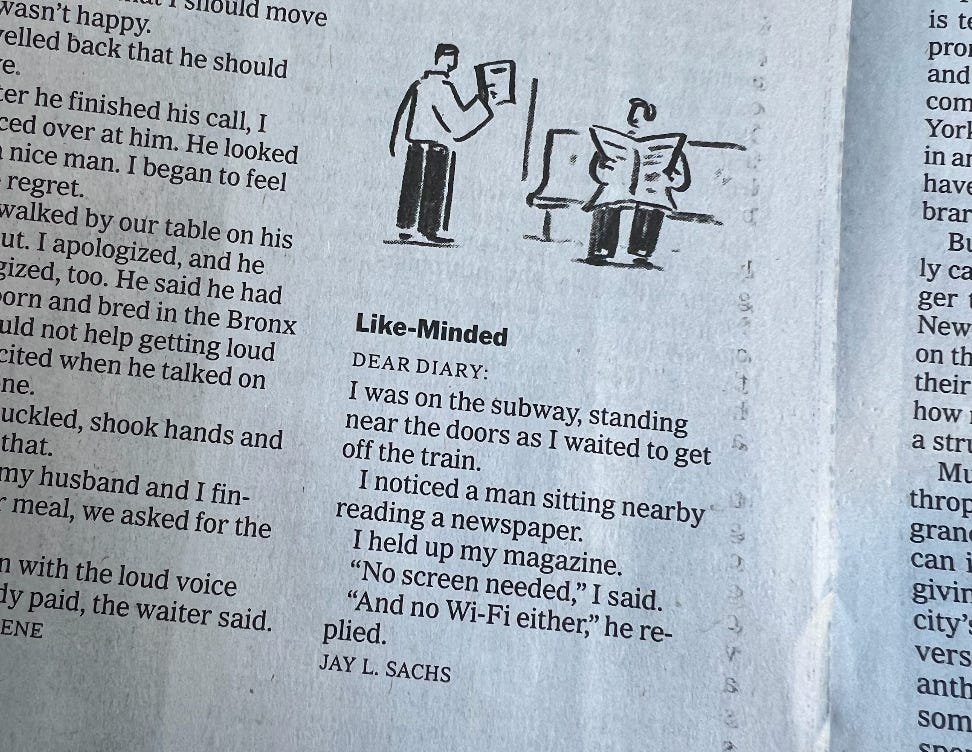stealing my focus back 💭
Musings on attention, "Stolen Focus", and how to make more time for reading
Whether you subscribe to the idea of New Year’s resolutions or not, chances are you’ve probably considered decreasing your screen time, mindlessly scrolling a little less, or even deleting certain apps to curb the irresistible pull of your smartphone and the infinite inputs that lie within it. Maybe you just want to be more present. Maybe you’re blissfully unconcerned about the addictive device in your hand and in that case, more power to you.
But if you’re like me, existential crises about what technology, specifically social media, has done to our minds—fracturing, splintering, shortening our attention spans—are a common occurrence.
A simple idea from one of my favorite books I read last year, How to Know a Person, has stuck with me like glue since I read it: our attention should be an on/off switch, not a dimmer. The author makes the case that in order to deeply know someone, we must give them our full attention. Not our attention as we finish up an email or a scroll through Instagram, but our genuine, undivided attention. Undivided attention can seem like an impossible expectation these days with the persistent stimulation that comes with being constantly, chronically online. But undivided attention can be the way to deeply meaningful relationships, deeply meaningful experiences, a deeply meaningful life.
For me, attention is physical—when I have it, it feels acute, keen, sharp. When I don’t, or it’s splintered across the various technologies that are littered around me at all hours of the day, I notice that my experience of life and the world around me feels dull, blurred, hazy.
Attention is intention. Attention is the ultimate commodity: the raw material of creating, of learning, of knowing. It can be wielded. It can be taken and given; it can appear in moments of noticing and disappear in hours of scrolling.
It goes without saying that there is good to be found in these tools: inspiration and ideas, connection and relation, awareness of news and happenings in your community and world. Two truths can exist at once: we can pay more attention without throwing our phones out the window. But whether you see it as good or bad or some inevitable combination of both, social media and the technology that powers it have changed everything.
One big change is that as a whole, we read less books. In the phenomenally insightful book Stolen Focus: Why You Can't Pay Attention—And How to Think Deeply Again, Johann Hari reports that culturally, reading for pleasure is at the lowest level ever reported. The number of people that have never read a book that wasn’t required of them has tripled between the 1970s and 2010s.
Reading is one of many dimensions—or casualties, I could say—of the “stolen focus” discussed in the book. The author references the intriguing premise around how “the medium is the message”. A new medium is like putting on a new pair of goggles with which we see the world anew. The medium of Instagram tells us that above all, it matters how you look and what others think about how you look. The medium of Twitter tells us that the world should be consumed in short bursts. But as the author references, “very few things worth saying can be said in 280 characters”.
This changing of medium has physiologically changed how our eyes and brains consume. What was once linear in books is now skimming on screens. Hari explains how we’re “losing stamina and ability to think cognitively for long periods of time”. Digestible media—which is valuable in its own way, sure—has literally altered our capacity to focus, robbed us of our long-term attention.
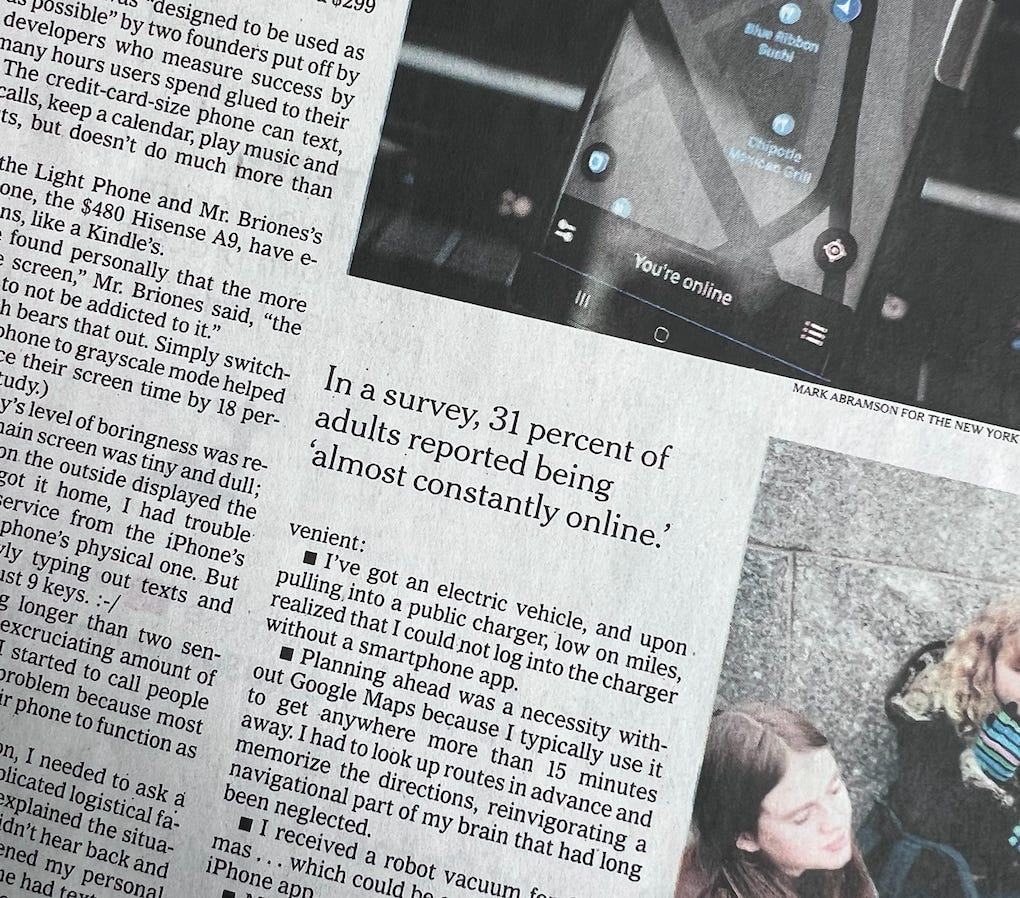
Books teach us that “the world is complex and requires steady focus to be understood. The world needs to be comprehended and understood slowly.” There is “value in narrowing our attention” to one sentence, then one chapter, then one book at a time. It is “worth thinking deeply about how other people live and think.” Books are “empathy gym”, she says.
Another gift this book gives is grace. Through expert journalism, the author breaks down how big tech is pretty much entirely to blame for this attention crisis. The tools they create are purposefully built to be addictive—there’s a reason the scrolling function is literally endless. Our brains are malleable and they adapt to the medium, to what we feed them. It’s validating to know that my struggle to pay attention for long stretches of time or to focus on one thing, even the things I love most like reading, or that my frustrating inability to resist the temptation of TikTok aren’t personal deficiencies: it’s the system working.
“Social media feeds the shallow part of our nature. Books feed the empathetic part.” Which part of your nature do you want to spend more time feeding? That’s really what it comes down to. Social media is a permanent part of life now, but books can be too. Despite the forces all around us, despite the system, we can work to narrow our attention, to steal back our focus, to put down the phone and pick up a book.
When we’re able to wrangle our attention—or perhaps as motivation to do just that—here are some tips on incorporating more reading into your life.
How to make more time for reading in 2024
Take yourself on a date!
Books are the best companions. Carve out a couple hours of free time to hit your favorite coffeeshop, bar, park and bring your book. No matter the location, it feels like such a treat to have some dedicated reading time.
Drinking a cappuccino, in a coffeeshop, relaxed and unhurried, reading a good book—this is my micro-utopia.
Join—or start—a book club
Book clubs are great for two reasons: they facilitate connection with pals over books, and they’re a solid source of extrinsic motivation. Many POVs are better than one, and it’s always so fascinating to hear others’ takes on books, to see how they’re similar or different from your own. And sometimes, if you’re like me, it’s helpful to have a deadline—your book club meeting—to work and plan towards.
A few years ago I was reading East of Eden—a monster at 600 pages and the tiniest font I ever did see—with a book club, and I left a party early to go home and finish it for the meeting the next day. I procrastinated, but I did it, and I’m so glad I did. I do not recommend making reading “work”, but it’s a great excuse to make yourself make time for reading.
Audiobooks: your own personal narrator
Audiobooks are divisive, but I am pro. I find that it’s a great way to get some reading in during the times throughout the day where your hands or eyes—read: not brain—are occupied: driving, walking the dog, cleaning.
I started my audiobook journey by listening to nonfiction. I found them easier to consume because there wasn’t a linear plot to follow, similar to a podcast episode. Then I worked my way up to fiction—ensemble casts, like Daisy Jones and the Six, and amazing narrators, like Meryl Streep reading Tom Lake, helped with that.
To bring it full circle, it’s all about attention. Sometimes, I have to actively remind myself to focus on what I’m hearing, rewinding if my mind wanders. It sounds ridiculous, but it’s almost like training—in my experience, the more audiobooks I listen to, the better I get at retaining them, the more I enjoy them.
However, in Stolen Focus, Johann Hari dives into the value and positive effects of allowing your mind to wander, giving yourself the time and space to think about …nothing. So while I am recommending audiobooks, I also recommend going on a walk sans headphones and see what great ideas your mind thinks up.
I download books through Libro.fm which supports local bookstores, or borrow from the library through Libby.
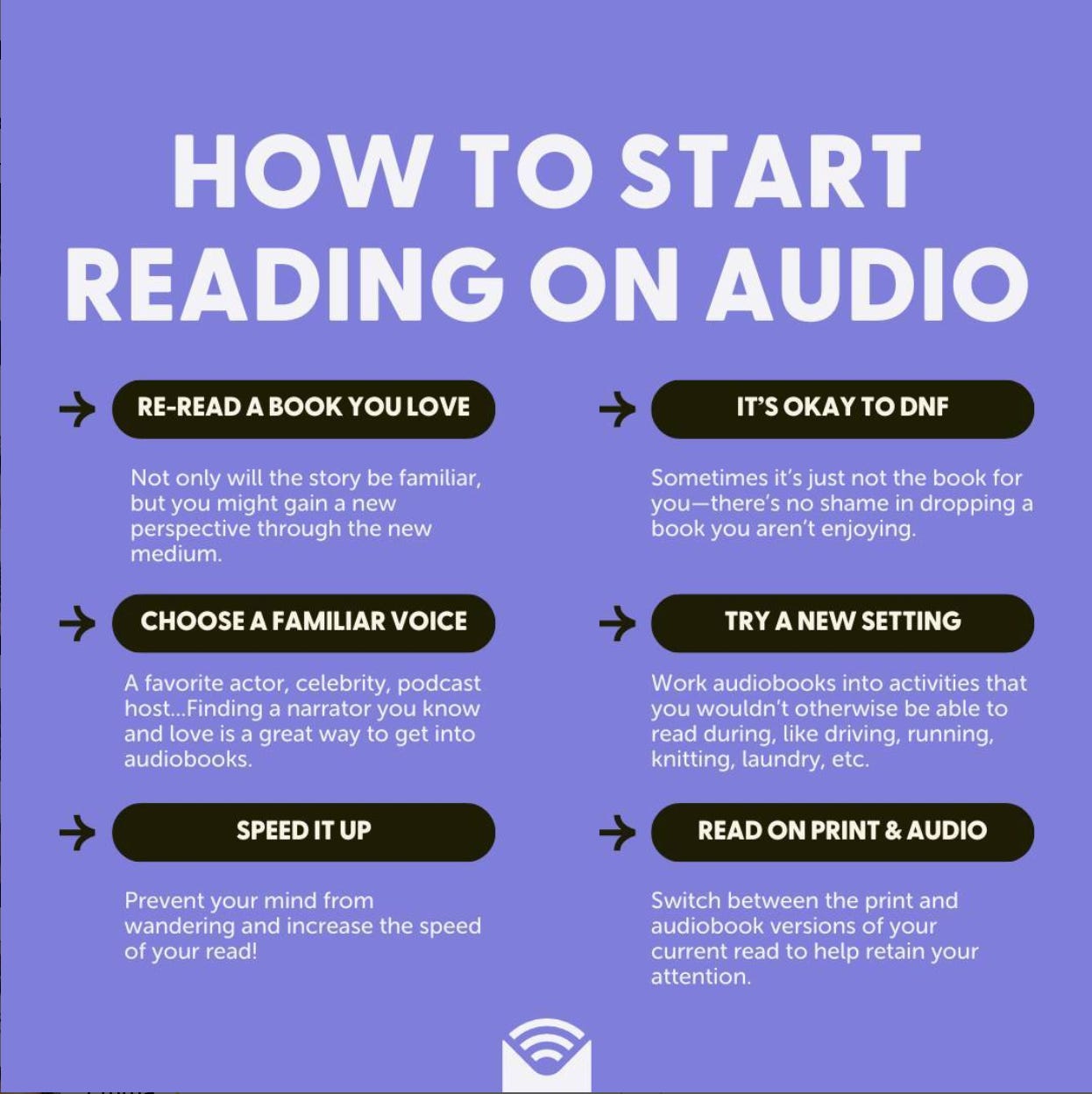
Bedtime stories
Studies show reading a book in bed before you fall asleep for the night actually really is good for you. I’m sure you’ve seen this advice in a thousand self-help articles and books and TikToks, but I’ve been sleeping with my phone in the kitchen, aka not inches away from my head on my nightstand, for the past few weeks and I couldn’t recommend it more. My Oura ring sleep score is always better when I end my day with a book instead of my phone.
Starting your day off right
Dedicate a bit of your morning to a chapter or two if you’re able. While it’s nice to have hours on end to read, squeezing in a bit here and there is equally as valid and just as good for the soul. Morning pages, if you will.
Honestly, whatever works for you
Hopefully these tips are helpful, but at the end of the day, read in a way, at a time that works for you. If you’re reading, you’re reading right.
See you back here next week for a special edition of curled up from a very special guest!!! 👀


